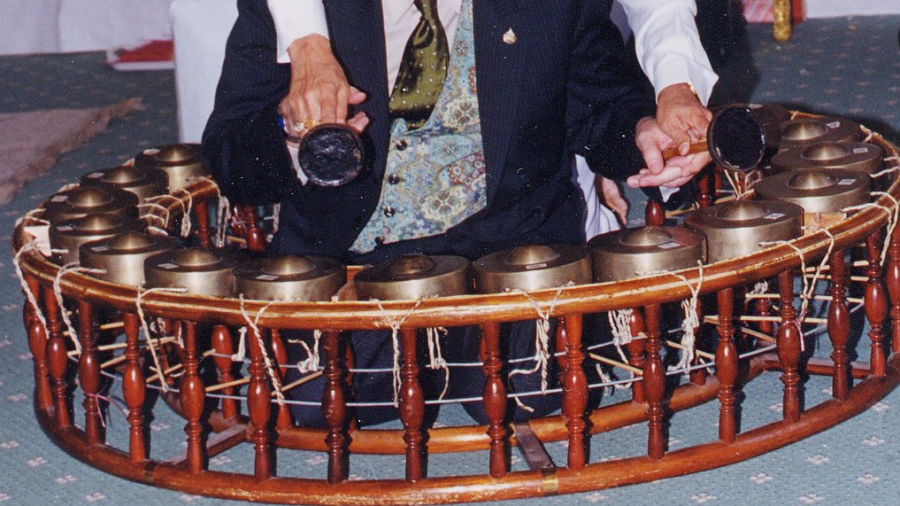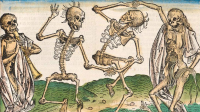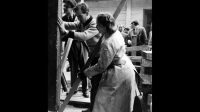
Overview
Whose knowledge do the ethnographies of ethnomusicologists and the analytical accounts of musicologists present? These were questions embedded in two early and often neglected texts by the late John Blacking, Black Background (1964) and Venda Children’s Songs (1967). In the first, he foregrounded the stories and letters of a seventeen-year-old girl as she described and critiqued Venda social and cultural life, and in the second he attempted to move beyond the analysis of recordings to discover the intentions of singers. Six decades on, ethnomusicological and musicological research methodologies remain largely unchanged, although the distance between “us” and “them” has reduced as musicians traverse the globe and as conferences become ever-more international. Still, Open the Social Sciences, the 1996 report of a Gulbenkian commission chaired by Immanuel Wallerstein, called for “incorporating the voices and experiences of dominated groups,” as a requirement for “achieving objective knowledge of social processes.” I call for a meeting of knowledges in which masterly musicians and local scholars become equal partners in research, thereby challenging the familiar Humboldtian structures of academic validation and legitimacy. My case studies are four collaborative projects with Korean, Kyrgyz, Nepali and Zimbabwean musicians, the Brazil-based “Meetings of Knowledges” project, and the emerging traditions of East Asian musicology in which proponents consider their approaches distinct.
Speaker
Professor Keith Howard is Professor Emeritus at SOAS, University of London. He was formerly Professor and Associate Dean at the University of Sydney and has held visiting professorships at Monash University, Ewha Women’s University, the University of Sydney, Hankuk University of Foreign Studies, and Texas Tech University. During the 2017–2018 academic year he was the Kent R. Mullikin fellow at the National Humanities Center, North Carolina. He works primarily as an ethnomusicologist and is known for his work on Korea although his interests extend to Kyrgyzstan, Nepal, Siberia, Thailand, as well as European early keyboard instruments, pipe organs and bell ringing. He has written or edited 23 books, including, recently, Songs for “Great Leaders”: Ideology and Creativity in North Korean Music and Dance (Oxford University Press, 2020), Presence Through Sound: Music and Place in East Asia (Routledge, 2020), and Transcultural Fandom and the Globalization of Hallyu (Korea University, 2019), and three collaborative texts with celebrated Zimbabwean, Korean, and Kyrgyz musicians: Zimbabwean Mbira Music on an International Stage (with Chartwell Dutiro; Ashgate, 2007), Korean Kayagum Sanjo (with Chaesuk Lee and Nicholas Casswell; Ashgate, 2008), and Singing the Kyrgyz Manas (with Saparbek Kasmambetov; Global Oriental/Brill, 2011). Over the last 40 years he has published 170 academic articles and 210 book/music reviews. He was director of the AHRC Research Centre for Cross-Cultural Music and Dance Performance (2002–2008) and editorial chair for the SOAS Musicology Series (Ashgate/Routledge, 2008–2017), and he founded and managed the SOASIS CD and DVD series as well as OpenAir Radio (now SOAS Radio). He has served on the councils and editorial boards of the British Forum for Ethnomusicology, International Council for Traditional Music, British Association for Korean Studies, the Australian Research Council, Music Theory Spectrum, Asian Ethnology, Asian Musicology, European Journal of Korean Studies, OMNES, and more.
Details
This event is organised in collaboration with The Royal Anthropological Institute.
This is a hybrid event, which will take place in-person in the Gatsby Room (Chancellor's Centre) and also on Zoom.
If you would like to attend in person, please register via Eventbrite.
If you would like to attend online, please register for the Zoom link.
For the in-person audience, drinks and snacks will be available after the talk.
The Humanities Society organises regular talks spanning a wide range of topics. Every Tuesday during term time.


